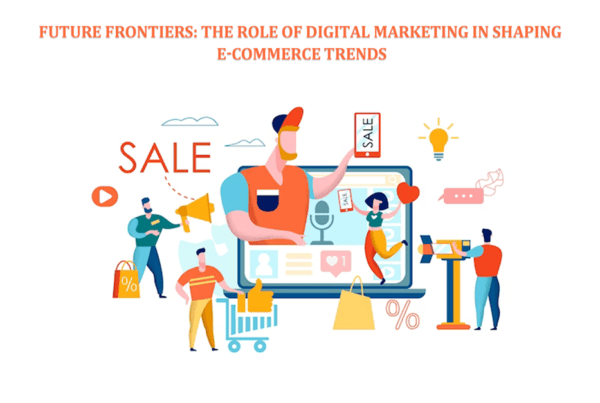Marketing has always been the heart of any company. Product promotion, the new brand image, festive offers, everything thrives on the efforts of digital marketers in this troubling time of the pandemic. But with the rise of tech and data transfer in the last decade, major security breaches have threatened the progress of digital marketers significantly. While large corporations have their own IT team to ensure the safety of the data and reputation, you should consider having a trustable VPN service for that.
Brand Reputation
A cyberattack – comprehensively successful or not – threatens the brand’s reputation. The sale nose-dives, new users revert back, and old customers leave. The time and dollars spent on the brand reputation with the marketing team just cease to encourage your company’s existence up to the point of a business closure.
A DDoS attack on your company’s website bleeds PR resources and money. While your website remains inaccessible during the DDoS attack, the funds spent on marketing in the meantime to generate leads just fade away.
No amount of beautiful images, engaging words, colourful websites, would be able to fix the shattered trust your customers once had for you.
Personal and Private Information
Data is precious. The monetary value of user data topped the oil industry several years ago. A typical cyberattack targets the information of a huge firm that holds personal data like name, address, email, and credit card details.
From a digital marketing standpoint, this is the crucifixion of all the good things that the team has built for the company. Once personal data is lost and the list gets out, there’s no way an organisation can earn back the misplaced confidence of their customers. When spam calls and perjury attempts start to disrupt your loyal patrons, they are going to know whose ignorance to implement better cybersecurity caused a loss of their quality of life.
Financial Data
One top vulnerable device with access is enough to wipe out a business. While ransomware attacks are pretty common for established organizations, no financial data like credit card details and passwords get out. The real enemy to digital marketing in 2022 is financial data breaches. Attackers often make the list public to plummet the stock prices and trustability of the company or the brand.
Think about noticing your personal financial details ending up on a public forum; your loyal customers will end up feeling the same. As secure as the bank servers are now, it’s unlikely that any monetary harm will prevail on your customers directly, but fraud and blackmailing might follow.
Trade Secrets
Marketing teams, before a product launch, remain active like a horse to build up the anticipation for the customers. Releasing teasers, building up the best possible website, holding PR campaigns, clicking the most intriguing photos come under brand awareness campaigns.
Once an attack hits, everything gets thrown out of the window.
A botched product page, plagiarised copy, leaked product information, everything contributes to a weak launch. Not only a product launch, your product pricing, profit margin, financial reports, company vision, everything can be stolen and used to harm your core ethos by rivaling companies.
How to Be Safe
As a business, you look forward to ensuring the safety of your data and technology. While you can hire a team of your own cybersecurity experts, you can also take the help of a Rayobyte residential proxy for the sake of the security of your organization, which is a proxy service that ensures safe and encrypted data transmission.
Let’s discuss some preventative measures you can take for the same.
Regular Backups
It’s only common sense in 2022 to conduct regular backups of your website, data, and tech. Even if an attack transpires on your business website, you will be prepared to restore all the functionality within a matter of hours without making a huge dent in your pocket. By defining clear policies on when, where, what, and how data is to be backed up and restored can make all the differences.
Two-Step and Multilayered Verification
Implementing login with various verification methods – especially for accounts with access to data – can help jinx up the cybersecurity measures for your company. Enforcing strong password requirements and encouraging employees to access their portals through secure devices and WIFI is critical to security.
Employee screening is as important as strengthening up the backend. An internal cyberattack can be more deadly than an external one depending on the extent of the access of the attacker. Keep a close eye on each and every employee that has access. It’s always better to be safe than sorry.
Use Updated Systems and Softwares
Just like the recent disclosure of log4j vulnerability, your system can also be vulnerable to cyberattacks if you use an outdated piece of tech. Tech providers frequently often push small updates to tie these loose ends; failing to match their update cycle can also cost you a lawsuit in case of an attack. Whenever an update is released, a public note usually follows. Which announces the details of the vulnerability. This is a critical opportunity for hackers. They analyze the risk and start looking for outdated systems that are still at risk to commence their attack.
Encryption and Decryption
Most companies use third-party platforms to transfer data from one end to another. Even if your servers remain safe, the data you have been transporting through the platform may not be. Use encryption methods whenever possible before transmitting critical data through servers. Additionally, as you will be aware of the employees having the decryption key, screening them in the time of crisis will be easier.
The Bottom Line
There will always be risks surrounding digital marketers in 2022 due to the nature of data-driven operations. But widely spread awareness among employees and customers can minimize the risks efficiently. Buffing up the cybersecurity of your organization to prevent attacks can prove to be the best investment, and might even help you save the business and the liveability of your employees.
The security of a website also falls on your marketing team and their ability to work alongside the IT team.









